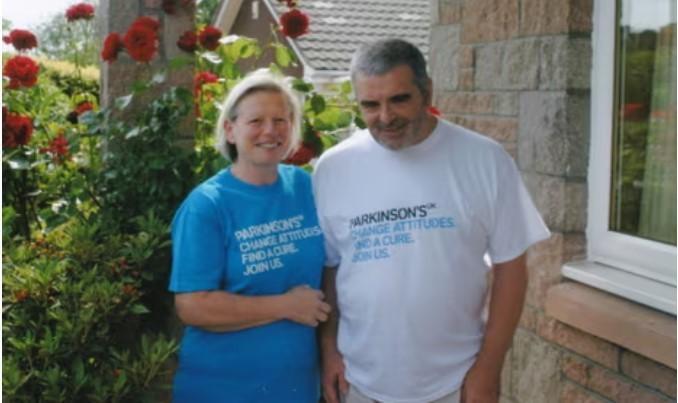
Woman who Smelled Husband’s Parkinson’s, Helps Develop New Test
Parkinson’s disease is a neurological disorder that affects millions of people worldwide. While there is no cure for the disease, early detection and timely treatment can significantly improve the quality of life for those affected. A remarkable breakthrough in Parkinson’s diagnosis has been made possible thanks to a woman who discovered her husband’s Parkinson’s through a distinct smell, years before symptoms appeared.
Joy Milne, a Scottish woman, discovered her husband’s Parkinson’s disease after noticing a peculiar odor from him. Her remarkable ability to detect the smell, which is not apparent to most people, helped scientists create a painless skin swab test that detects the disease up to seven years early. This innovative test offers hope for faster diagnoses, timely treatment, and a better future for people at risk of Parkinson’s.
Joy’s husband, Billy, was diagnosed with Parkinson’s in 2007, after experiencing symptoms such as tremors, rigidity, and difficulty with balance and coordination. However, Joy had noticed a strange smell emanating from him years before the diagnosis. The smell, which was often described as “burnt toast” or “old socks,” was not just a trivial matter. It was a sign that Billy’s body was producing a unique chemical signature, which would later become the key to early detection of Parkinson’s.
Scientists were fascinated by Joy’s ability to detect the smell, and they worked with her to understand the chemical compounds responsible for the odor. The research led to the development of a non-invasive skin swab test that can detect the disease biomarkers in sweat.
The test, known as the “Parkinson’s disease biomarker test,” is a simple, painless procedure that involves swabbing the skin with a special cotton pad. The swab is then sent to a laboratory for analysis, where the presence of the disease biomarkers is detected.
The test has been shown to be highly accurate, detecting Parkinson’s disease up to seven years before symptoms appear. This is a significant breakthrough, as early detection and treatment can slow down the progression of the disease and improve quality of life for those affected.
The development of the test is a testament to the power of collaboration between scientists and individuals affected by Parkinson’s. Joy Milne’s remarkable ability to detect the smell of Parkinson’s has opened up new avenues for research and diagnosis.
“This breakthrough is a direct result of the partnership between Joy and our research team,” said Dr. Andrew Westlake, a researcher at the University of Cambridge, who worked with Joy to develop the test. “Joy’s unique ability to detect the smell of Parkinson’s has enabled us to identify the disease biomarkers in sweat, which has led to the development of a non-invasive test.”
The test is still in the process of being refined and validated, but it has the potential to revolutionize the way Parkinson’s disease is diagnosed and treated. Early detection and treatment can significantly improve the quality of life for those affected, and this test offers hope for faster diagnoses and timely treatment.
Joy Milne’s remarkable story is a testament to the power of human intuition and the importance of collaboration in scientific research. Her discovery has the potential to change the lives of millions of people worldwide, and it is a shining example of the impact that individuals can have on the scientific community.



